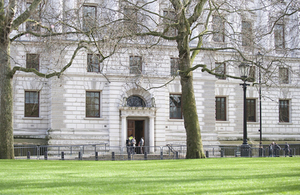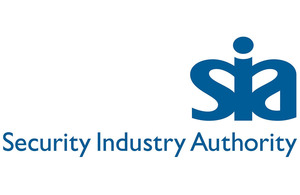Thank you Madam President.
Last year, the UK published our Integrated Review of Security, Defence, Foreign and Development Policy. It set out the deteriorating security environment, flagging the risks posed by new disruptive technologies, alongside longstanding proliferation concerns about the activities of the Democratic People’s Republic of Korea and Iran. But it also pointed out the growing challenge from major nuclear armed states willing to flout international norms of behaviour.
Russia’s recent unprovoked and horrific attack on Ukraine casts a dark shadow over the work of this conference. Because the security environment sets the context for what can be achieved on disarmament.
As I told the UN General Assembly last week, the United Kingdom is unwavering in its support for Ukraine’s sovereignty, independence and territorial integrity. Together we must all unequivocally condemn this aggression, which is a violation of international law and the UN Charter.
As the UK Foreign Secretary set out in her speech in Ukraine on 17 February, in order to achieve a safer world it is now vital that the international community comes together to recommit to arms control.
In doing so, we must strengthen our existing security frameworks, and refresh our thinking so we are prepared for the challenges and opportunities of the 21st Century.
Strengthening the NPT
Strengthening the Treaty on the Non-Proliferation of Nuclear Weapons, as the cornerstone of the international nuclear architecture, is an important place to start.
This year we look forward to the long awaited Tenth Review Conference to the NPT, which offers an opportunity to reflect on the successes of the Treaty, and its central role in keeping our world safe over the last 52 years.
UK Approach
Although the world has changed significantly since 1970, the UK’s commitment to the NPT, and fulfilling our obligations under all three pillars of the Treaty, remains undiminished.
We believe the NPT continues to play a central role in promoting long-term stability, peace and security.
The UK therefore wants to work with all States Parties in the coming months to build the momentum for a successful Review Conference.
In October we published our National Report outlining the steps the UK has taken to implement its commitments across all three pillars of the NPT since 2015.
The report set out the progress the UK has made on disarmament, including our leading role in nuclear disarmament verification, and in championing transparency and advancing risk reduction.
We have also pressed for significant steps towards multilateral disarmament, including the entry into force of the Comprehensive Test Ban Treaty, and beginning negotiations on a Fissile Material Cut-off Treaty.
Progress in the P5
The UK also recognises our responsibility to cooperate closely with the other NPT Nuclear Weapon States, in order to make progress on disarmament and risk reduction. This work is vital, and even more important in periods of heightened international tension.
The Joint Leaders Statement on the Prevention of Nuclear War in January was an important signal of our collective commitment, by affirming that a nuclear war cannot be won and must never be fought, and that nuclear weapons—for as long as they continue to exist—should serve defensive purposes, deter aggression, and prevent war.
We want to build on this landmark statement, by deepening our work within the P5 Process on reducing the risk of nuclear conflict through misinterpretation and miscalculation, and enhancing mutual trust and security.
Building this foundation will be an important step in realising our shared long-term goal of a world without nuclear weapons.
2022 as a Year of Opportunity
In addition to the opportunities to collectively strengthen the NPT, 2022 is a year of wider opportunities and challenges for the multilateral disarmament architecture.
Outer Space
The prevention of an arms race in outer space is as important today as it was in the early 1980s when it first became an agenda item of this Conference.
But the nature of the challenge has evolved considerably in that time, and we need to ensure the discussions and negotiations keep pace with those developments.
The UK is delighted to see the progress we have all made through the UN General Assembly on tackling threats in, to, and through space.
There was overwhelming support to set up an Open Ended Working Group to look at responsible space behaviours, in support of our overarching objective of preventing an arms race in outer space.
We all rely on space systems for our prosperity and security, and we must protect them from State threats.
The UK promotes responsible space behaviours to reduce the chances of misunderstanding and escalation that could lead to conflict.
We are pleased to see scheduled discussions on the Prevention of an Arms Race in Outer Space at this Conference.
We welcome calls to ban the testing of direct-ascent anti-satellite missiles, that create long-lived debris. This Conference can play an important role in negotiating how this would work.
But we must not forget that many of the threats we face are not as visible as missiles. There are other ways to degrade and damage space systems, such as lasers and jammers, and we will include these in our work.
We also support greater openness and communication between States.
In the spirit of openness, the UK will present our new Defence Space Strategy to this Conference in the coming weeks.
We encourage all States to publish their own military space strategies, so we can better understand each other.
Chemical Weapons
2022 is also a year of challenges for the control of chemical and biological weapons, where the dangers have not dissipated. But there are also opportunities
Syria remains defiant in its refusal to abide by its obligations on chemical weapons.
In April, the international community underscored its abhorrence of Syria’s use of chemical weapons by suspending Syria’s voting rights and privileges in the OPCW, as provided for in the Chemical Weapons Convention.
We must hold fast to our core principles, defend the integrity of the Chemical Weapons Convention and the OPCW, and hold those who use chemical weapons to account.
The Russian Federation has continued to fail to answer the international community’s questions about the poisoning of Alexey Navalny with a Novichok nerve agent.
Russia has the opportunity to explain what happened, cease disinformation, and declare any chemical weapons programme.
The COVID-19 pandemic has shown us the harm that disease can wreak on our societies.
We should grasp the opportunity of the upcoming Review Conference of the Biological Weapons Convention, and strengthen the provisions that ensure current and future life sciences are used only for peaceful purposes.
Full implementation of commitments under the Convention will keep us all safer, as will steps to make the Convention more effective, visible and relevant.
Conventional Weapons
The UK recognises the extraordinary potential that technology has for global prosperity. But we also acknowledge the potential for misuse.
We are focused on ensuring that existing counter-proliferation regimes remain effective in light of technological development.
We are also committed to working with our international partners to develop standards and principles for the deployment of critical technologies.
Together we must inject new energy into the work of the Group of Governmental Experts looking at Lethal Autonomous Weapons systems. We should aim to make tangible progress this year. The UK will signal a clear path to achieving this at the upcoming meeting in March.
In addition to this work, the UK’s commitment to the humanitarian goals of disarmament remains unwavering.
Under our Presidency of the Convention on Cluster Munitions, we are intensifying work to achieve universal ratification of this important Treaty.
In coordination with our Nigerian and Swiss partners, we will host a regional Universalisation ratification workshop in Abuja later this month to exchange ideas and best practices, and bolster support for the Convention.
Since 2018, the UK has invested approximately £146 million to save lives, limbs and livelihoods from the scourge of land mines, cluster munitions and the explosive remnants of war.
This work includes clearing and releasing land for productive use, and delivering risk education for communities still living with the deadly legacy of conflict.
We will continue this work with the next phase of our Global Mine Action Programme.
But even with the significant investment that the UK and other donors have made over the years, the scale of the challenge dwarfs the funds available from these sources.
That is why, alongside our direct contribution, the UK has funded research into innovative financing options for mine action.
We will continue to explore this, including through hosting a conference in March, with the aim to pilot an alternative finance model in due course.
Madam President, to conclude, 2022 presents us with significant challenges but also new opportunities to find creative solutions to make our world safer and more prosperous.
This Conference has a key role to play, as the world’s single multilateral negotiating forum on disarmament.
The UK is pleased with our collective decision to establish Subsidiary Bodies to allow for an in-depth examination of the state of play on the core issues on the Conference’s agenda.
Let me pay tribute to the work of the Chinese Presidency in preparing the ground for this important step.
It is down to all of us to make this mechanism productive, and approach the significant problems we face with an open and constructive attitude.
The UK delegation will work to support the five coordinators charged with that task in whatever way we can.
Thank you.


